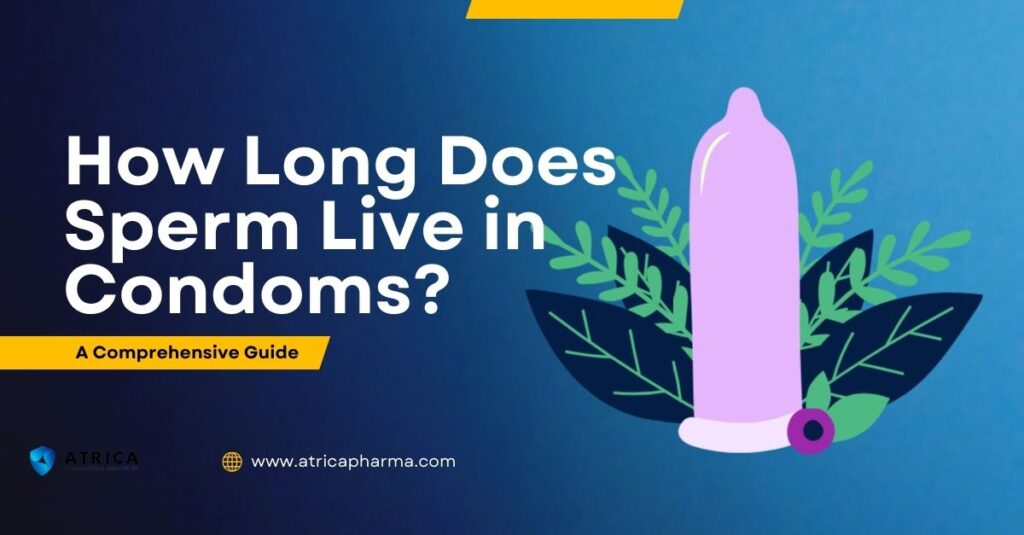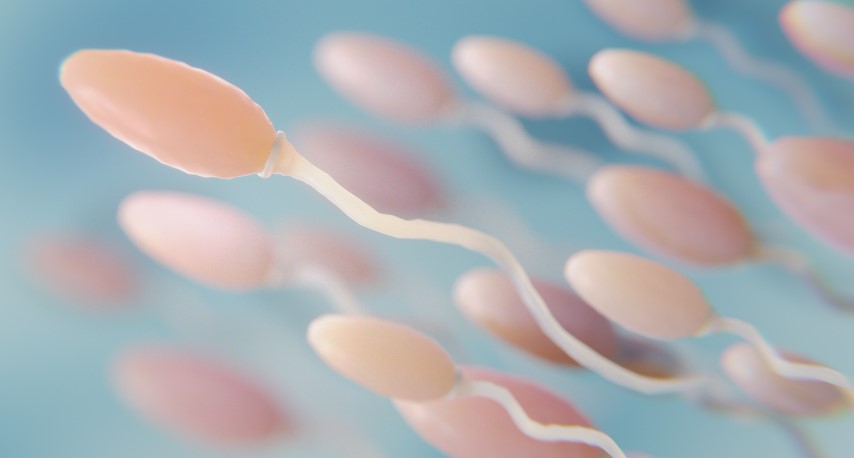
How Long Does Sperm Live in Condoms? A Comprehensive Guide
Have you ever wondered how long sperm can survive in a condom? Understanding this can be crucial for both fertility planning and contraception. This comprehensive guide delves into the lifespan of sperm within a condom, the factors affecting their viability, and answers to frequently asked questions.
Read on to uncover all the details you need to know about sperm survival in condoms.
How Long Does Sperm Live in Condoms?
When it comes to understanding sperm longevity within a condom, several factors come into play. This section explores the typical lifespan of sperm when stored in a condom.

Lifespan of Sperm in Condoms
Sperm typically survive for a very short period outside the body, and the environment within a condom is no exception. Under optimal conditions, sperm can live up to a few hours in a condom. However, exposure to air, changes in temperature, and the materials used in condom manufacturing can significantly reduce this time.
Factors Affecting Sperm Viability in Condoms
Several elements can influence how long sperm remain viable in condoms. This section examines these crucial factors.
Environmental Conditions
The environment plays a significant role in sperm survival. Sperm thrive in warm, moist environments, similar to the human body. Once outside this environment and inside a condom, sperm are exposed to air and varying temperatures, which can quickly reduce their viability.
Type of Condom
The material of the condom also affects sperm longevity. Latex and polyurethane condoms are impermeable and prevent the escape of sperm. However, these materials do not provide the ideal conditions for sperm survival, leading to a shorter lifespan compared to when sperm are within the human body.
Presence of Lubricants and Spermicides
Lubricants and spermicides used on or within condoms can significantly impact sperm viability. Spermicides are designed to kill sperm, while certain lubricants might not be sperm-friendly, reducing their survival time.
Sperm Survival: Inside vs. Outside the Body
To fully grasp how long sperm live in condoms, it’s essential to compare their lifespan inside and outside the human body.
Inside the Body
Within the female reproductive tract, sperm can live up to five days. The cervical mucus provides a nourishing environment that supports their longevity, significantly increasing the chances of fertilization during this window.
Outside the Body
Outside the body, sperm survival dramatically decreases. Exposure to air, temperature changes, and lack of nutrients cause sperm to perish quickly. In a condom, the lifespan is generally reduced to a few hours at most.
Proper Storage and Handling of Condoms
Understanding proper storage and handling of condoms is crucial for maintaining their integrity and effectiveness.
Storage Conditions
To maximize the effectiveness of condoms and protect sperm viability (if relevant), store condoms in a cool, dry place away from direct sunlight and extreme temperatures. Avoid storing condoms in wallets or other places where they can be exposed to friction and damage.
Handling Condoms
Proper handling of condoms is essential. Use condoms before their expiration date, and avoid using teeth or sharp objects to open the packaging to prevent tears and leaks.
FAQs – How Long Does Sperm Live in Condoms?
Can sperm survive in a condom overnight?
No, sperm generally do not survive in a condom overnight. Exposure to air and temperature changes significantly reduce their viability.
Do spermicidal condoms affect sperm survival time?
Yes, spermicidal condoms are designed to kill sperm, significantly reducing their survival time.
Does the type of lubricant affect sperm lifespan in condoms?
Yes, certain lubricants can be harmful to sperm, reducing their survival time in condoms.
How long can sperm survive in a sealed condom?
In a sealed condom, sperm can survive for a few hours at most, but this varies based on environmental conditions and condom materials.
What factors reduce sperm viability in condoms?
Exposure to air, temperature fluctuations, condom materials, and the presence of spermicides or certain lubricants can all reduce sperm viability.
Is it possible for sperm to escape from a condom?
Properly used condoms are designed to be impermeable, preventing sperm from escaping. However, incorrect usage or damage to the condom can lead to leaks.
Can freezing a condom with sperm preserve the sperm?
No, freezing a condom with sperm is not a viable method for preserving sperm. Freezing without proper cryopreservation techniques will destroy the sperm cells.
Conclusion – How Long Does Sperm Live in Condoms?
Understanding how long sperm live in condoms is essential for both contraception and fertility planning. While sperm can survive for a few hours in a condom under optimal conditions, their viability is significantly reduced compared to their lifespan inside the human body. Proper storage and handling of condoms are crucial to ensure their effectiveness and the safety of sperm, if relevant. By being informed about these factors, individuals can make better decisions regarding their reproductive health.